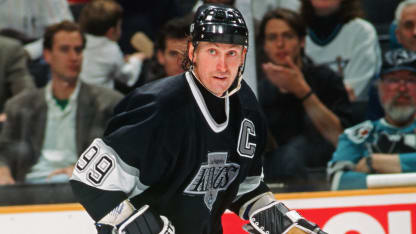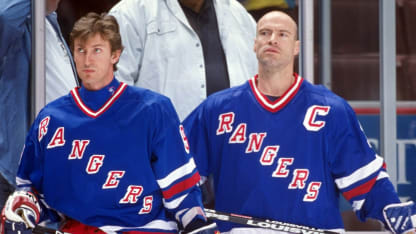At the time of the trade, the Kings were the only U.S.-based NHL team west of Minnesota; the Colorado Rockies became the New Jersey Devils in 1982 and the California Golden Seals became the Cleveland Barons in 1976. Seven California-born players had played at least one NHL game.
Today, the Kings are one of seven U.S.-based teams west of Minnesota, with the potential for an eighth in Seattle soon. The number of California-born players who have played at least one NHL game is up to 44, including 11 last season.
Gretzky's arrival in Los Angeles began a hockey movement that has spread throughout California and well beyond.
USA Hockey said it had a record 61,554 registered players, including 6,702 female players, from its Pacific region (Alaska, California, Hawaii, Nevada, Oregon and Washington) last season. There were 11,287 registered players (female players and players age 6 and younger were not counted yet) from the Pacific region in the 1990-91 season, which was after Gretzky arrived but before the NHL began adding teams in San Jose, Anaheim, Dallas, Arizona, Colorado and Las Vegas.
As for California, in 1988 there were an estimated 2,925 youth players (18 and under) in the state, according to USA Hockey; last season there were 14,886, an increase of 409 percent). The state had 34,653 registered players (2,963 of them female) through USA Hockey last season, putting it sixth in the country behind traditional hotbeds Minnesota (71,517), Massachusetts (59,430), Michigan (53,780), New York (56,095) and Illinois (35,950).
The growth is staggering in the Rocky Mountain region (Arizona, Colorado, Idaho, New Mexico, Oklahoma, Texas and Utah) and the Southeastern region (Alabama, Arkansas, Florida, Georgia, Louisiana, Maryland, Mississippi, North Carolina, South Carolina, Tennessee, Virginia and Washington, D.C.).
There were 55,241 registered players (5,929 female) last season in the Rocky Mountain region, up from 7,304 in 1990-91. The Southeastern region has seen even more growth, with 62,060 players registered (5,172 female) last season compared to 4,462 in 1990-91.





















